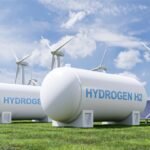Get Ready for Hydrogen: Why This Next-Gen Fuel Matters for the Future
As the world marches toward sustainability, clean hydrogen emerges as a cornerstone for reducing carbon emissions and achieving energy independence. However, transitioning to hydrogen-based energy presents a maze of complexities. Keemurai’s bespoke solutions simplify this transition, enabling businesses to harness the power of clean hydrogen and ensure a greener, more efficient future.
The Promise of Clean Hydrogen
Clean hydrogen, produced using renewable energy sources, is a versatile agent of decarbonization across various sectors, from transportation to heavy industry. Its ability to store energy and produce zero emissions makes it a game-changer in the realm of sustainability and energy security.
Why Businesses Should Consider Hydrogen
Sustainability: Hydrogen, produced from renewable sources, results in zero carbon emissions at the point of use, underscoring its environmental benefits.
Energy Security: Hydrogen’s storability and transportability make it a reliable energy source, ready for on-demand use.
Regulatory Compliance: Governments are rolling out regulations and incentives to propel the adoption of hydrogen technologies, making compliance and benefits align.
Challenges in Clean Hydrogen Adoption
Production Costs
Impact: Green hydrogen production currently ranges between $3 to $6 per kilogram, significantly higher than hydrogen from natural gas ($1 to $2 per kilogram). However, advancements and economies of scale are expected to drive these costs down.Example: Scaling up production and technological advancements in electrolysis can help reduce costs. Large-scale projects in countries like Australia and Saudi Arabia are already working toward making green hydrogen more cost-competitive.
Infrastructure
Impact: With fewer than 500 hydrogen refueling stations worldwide, the infrastructure gap remains a significant barrier.Example: The European Union's Clean Hydrogen Alliance aims to establish 1,000 hydrogen refueling stations by 2030, reflecting efforts to bridge the infrastructure gap.
Market Demand
Impact: Global hydrogen demand was around 90 million metric tons in 2020, with less than 1% from renewable sources. Boosting production and market demand is crucial for broad adoption. Example: Countries like Japan and South Korea are investing heavily in hydrogen technology to create demand, such as hydrogen-powered public transport systems.
Keemurai's Vision for Clean Hydrogen Adoption
Keemurai is poised to play a significant role in advancing clean hydrogen through advisory, facilitation, and partnership-driven strategies. Our services aim to assist businesses in navigating the complexities of hydrogen integration, focusing on the following key areas:
Green Hydrogen Production: We help identify and integrate renewable energy sources for hydrogen production, ensuring a zero-carbon emissions cycle.
Electrolysis Technologies: Our approach includes evaluating and recommending advanced electrolysis technologies, such as Proton Exchange Membrane (PEM) and Alkaline Electrolysis, based on project-specific needs.
Storage and Transport Solutions: Keemurai aims to provide expert insight into hydrogen storage technologies, including high-pressure tanks and cryogenic storage, to ensure safe and efficient transport.
Infrastructure Development: Partnering with industry stakeholders, we will assist in developing the necessary infrastructure to support hydrogen adoption in transportation and industry.
Why Transition Now?
Power Plants
Transitioning to hydrogen can significantly reduce CO2 emissions from power generation. Hydrogen can be used as a clean fuel in existing gas turbines, reducing reliance on natural gas and coal.Benefit: Power plants can meet stringent environmental regulations and improve public perception.
Example: A power plant in the United States transitioned 30% of its fuel to hydrogen, achieving compliance with new emission standards and gaining positive public feedback.
Industrial Applications
Industries like steel and cement are significant CO2 emitters. Hydrogen provides a viable pathway to decarbonize these sectors.Benefit: Companies can cut their carbon footprint, meet sustainability targets, and gain a competitive edge.
Example: A leading cement manufacturer integrated hydrogen into its production process, resulting in a 20% reduction in CO2 emissions and increased market share due to its green credentials.
Transportation
Hydrogen fuel cells offer an efficient and clean alternative to conventional internal combustion engines, especially for heavy-duty vehicles, trains, and ships.Benefit: Businesses can lower operational emissions, qualify for green incentives, and align with global sustainability trends.
Example: A fleet of hydrogen-powered trucks in a logistics company reduced fuel costs by 25% and emissions by 40%, demonstrating significant operational and environmental benefits.
Future Outlook: The Role of Hydrogen in a Sustainable Energy System
The adoption of clean hydrogen is set to rise, driven by technological advancements and supportive policies. Key trends to watch include:
Hydrogen Economy
Stat: The global hydrogen market is projected to grow to $201 billion by 2025, with clean hydrogen playing a pivotal role.Investments from major economies like the EU’s $430 billion hydrogen strategy underline the significant role hydrogen is expected to play.
Technological Innovations
Stat: Continuous innovations in hydrogen production, storage, and utilization are expected to cut costs by up to 50% by 2030.Breakthroughs in solid oxide electrolyzer cells (SOEC) promise to enhance efficiency and reduce production costs significantly.
Policy Support
Stat: Increasing governmental support and incentives for hydrogen projects, with significant investments from countries like Japan, Germany, and South Korea.Japan’s Basic Hydrogen Strategy aims for a hydrogen society by 2050, with policies that encourage hydrogen use in various sectors.
Sector Coupling
Stat: Hydrogen will increasingly connect various sectors, including electricity, heating, and transport, creating an integrated energy system that maximizes efficiency and reduces emissions.Germany’s H2 Mobility initiative integrates hydrogen production with transportation and heating, creating a cohesive energy system.
Keemurai is leading the charge in clean hydrogen development, offering innovative solutions that address current challenges and pave the way for a sustainable energy future. By harnessing the power of green hydrogen, we are not merely reducing carbon emissions but also driving economic growth and energy security.
Ready to transition to hydrogen energy? Contact Keemurai today to learn how our comprehensive hydrogen solutions can help your business achieve its sustainability goals.





